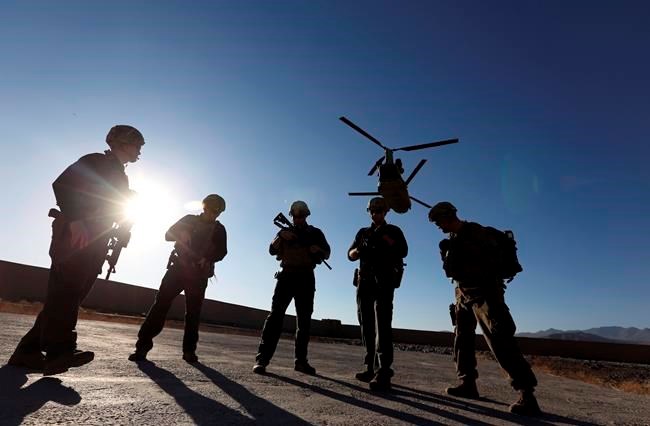WASHINGTON — The U.S. military is pausing the movement of any new troops into Afghanistan and is quarantining 1,500 troops and civilians who recently arrived to avoid any possible spread of the coronavirus, the top commander in the country said Thursday.
Troops who are already in the country may have their deployments extended so missions can continue.
The announcement comes as the United States is reducing its troop presence in Afghanistan as part of the peace deal signed last month between the U.S. and the Taliban.
In a tweet, Army Gen. Scott Miller said the military has started new screening procedures for personnel arriving in the country. About 1,500 service members, civilians and contractors who have gone to Afghanistan from various countries in the past week are living in screening facilities.
Miller said most are either new deployments or people returning from leave and they are being quarantined “out of an abundance of caution, not because they are sick.” He added that the U.S.-led coalition is also limiting access to critical personnel and bases.
So far, 21 U.S. and coalition personnel exhibiting flu-like symptoms are in isolation and receiving medical care. None has tested positive for the coronavirus.
There are more than 12,000 U.S. troops in Afghanistan, but that number is supposed to gradually drop to about 8,600 over the next few months as part of the peace deal.
For most people, the coronavirus causes only mild or moderate symptoms, such as fever and cough. For some, especially older adults and people with existing health problems, it can cause more severe illness, including pneumonia.
The vast majority of people recover from the virus. According to the World Health Organization, people with mild illness recover in about two weeks, while those with more severe illness may take three to six weeks to recover. In Afghanistan, 22 people have been diagnosed with the virus but no deaths have been reported.
___
The Associated Press receives support for health and science coverage from the Howard Hughes Medical Institute’s Department of Science Education. The AP is solely responsible for all content.
Lolita C. Baldor, The Associated Press


